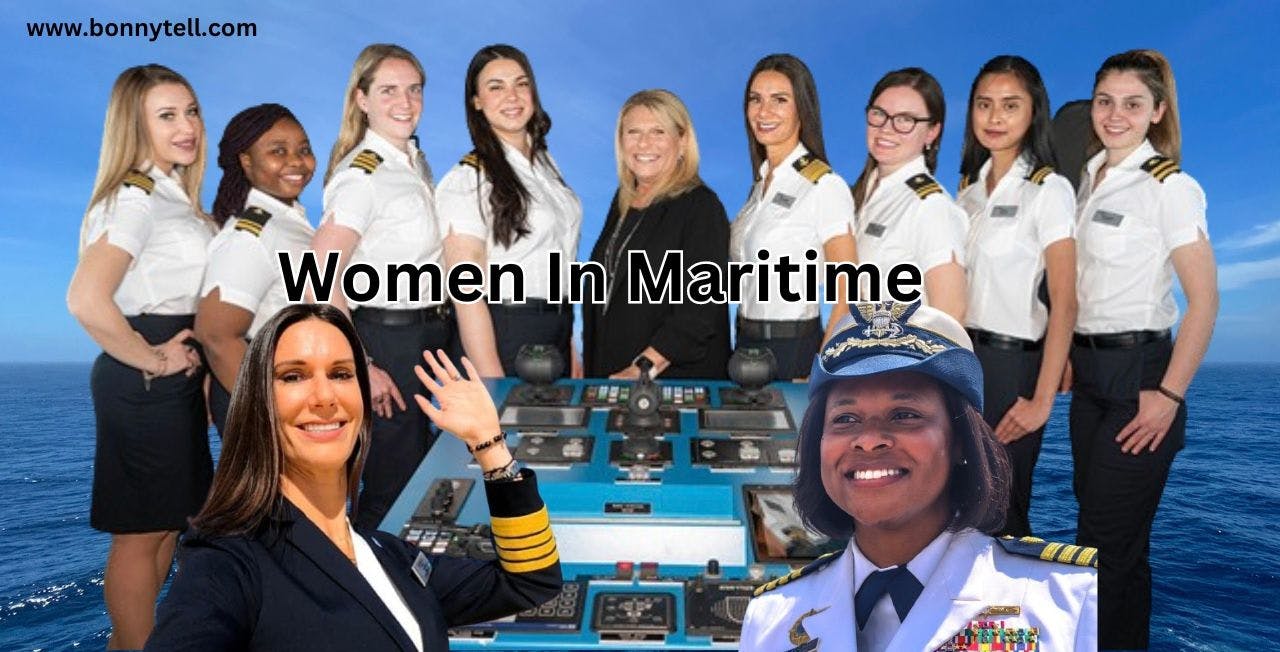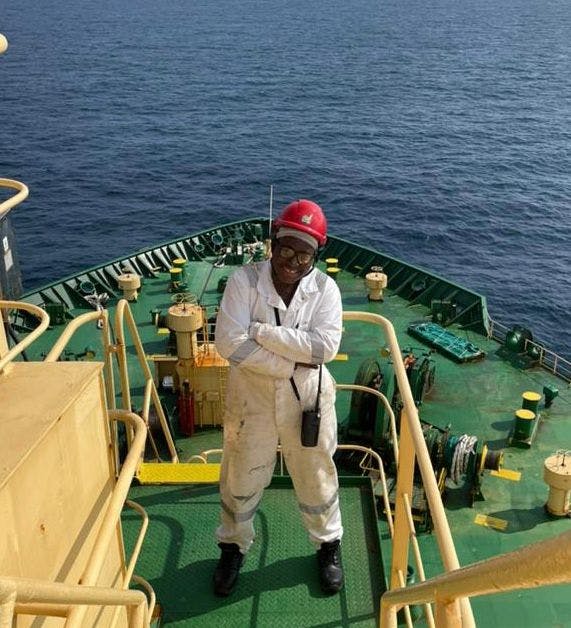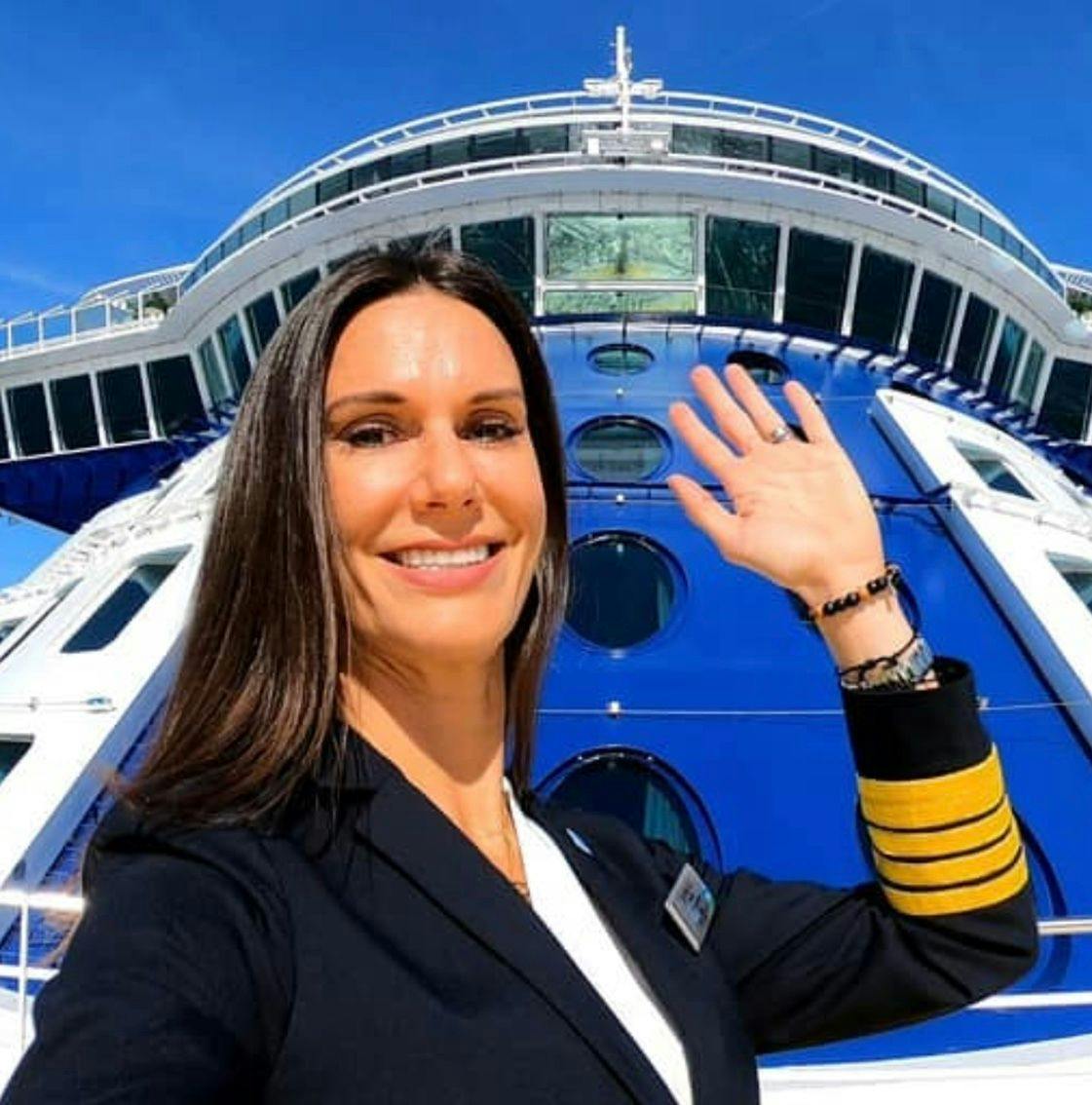Breaking Barriers: Women Making Waves in the Maritime Industry – Challenges, Triumphs, and Advocacy Efforts

"I think what I’m most proud of is the fact that I was able to prove to myself that I could do it, and I did it. As a woman in a male-dominated sector, you have to prove yourself more than your male counterparts because of the world we live in. They are easily accepted than you would, so it gives me great satisfaction to know it’s attainable.” Masa Tarimoboere Ayakeme, a female sailor.

Breaking into a male dominated industry for her, means she will have to prove herself, even more than her male counterparts according to her. And for her, it gives her great satisfaction that having a career and thriving a male dominated industry is attainable.
Unarguably, the maritime industry has been a male dominated industry for decades. In the expansive world of maritime, where the sea's allure and challenges intertwine, women have carved a remarkable but often overlooked niche. However, the tides are changing, albeit slowly, as more women navigate these waters, challenging stereotypes and redefining the face of seafaring careers. most people, men particularly are most likely to be in disbelief whenever a woman tell them she is a sailor because, historically, perceptions of the sea as a man's domain have hindered opportunities for women seeking careers aboard ships or in maritime operations. But that narrative is gradually changing. According to BIMCO/ICS 2021 Seafarer Workforce Report, women make up a mere 1.2% of the global seafarer workforce. However, there is a glimmer of progress in this figure, marking an upward trend in achieving gender balance within the industry. According to the report, an estimated 24,059 women are currently serving as seafarers, signifying a noteworthy 45.8% increase compared to the figures reported in 2015.
Navigating a Male-Dominated Industry
“Truthfully, I had no prior knowledge of it until I stumbled upon it. While pursuing my civil engineering degree at the university, I came across a scholarship opportunity to study Nautical Science, and from that moment, everything changed.”-Masa Tarimoboere Ayakeme, a female sailor, when asked what influenced her to pursue a career at sea.
One of the challenges faced by aspiring female sailors is limited Representation and Support. The scarcity of female role models and mentors within the maritime field leaves aspiring women with few exemplars to emulate or seek guidance from. The lack of support networks and resources tailored to women's needs can impede their progress and success.
Triumphs and Inspiring Feats
"Shipping remains a male dominated industry and we are part of the concerted effort to help the industry to move forward. Leading the way by the example and encouraging more women in the industry is of paramount importance."
Christine Ezcutari, Global Head of Shipping, Paris.
Pioneers in Maritime
Despite these challenges, numerous women have broken barriers and achieved remarkable milestones in the maritime industry. Women like Captain Kate McCue, who made history as the first American woman to captain a mega-cruise ship, have paved the way for others aspiring to follow suit.

Advocates for Change
Beyond their professional accomplishments, many women in maritime have become vocal advocates for gender equality and diversity within the industry. Their advocacy amplifies the need for inclusivity and fosters an environment conducive to women's participation at all levels.
In a bid to encourage gender equality and inclusivity, IMO, The International Maritime Organisation has made remarkable effort to ensure and encourage gender equality. Dated back to 1988, when IMO initiated the gender program, at a time when only but a few maritime institutions could admit female students. Since then, IMO has continuously support and created an enabling environment for women In the maritime industry.
In 2021, 18 of May was endorsed by IMO as the International day of women in Maritime, an annual celebration honoring women in the maritime industry. Its primary goal is to advocate for the recruitment, retention, and continual employment of women within the maritime sector. Furthermore, the day aims to elevate the visibility of women in maritime roles, bolster the International Maritime Organization's dedication to United Nations Sustainable Development Goal 5—fostering gender equality—and contribute to efforts addressing the existing gender disparity within the maritime field.